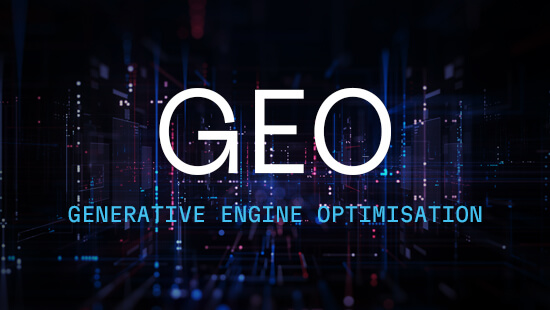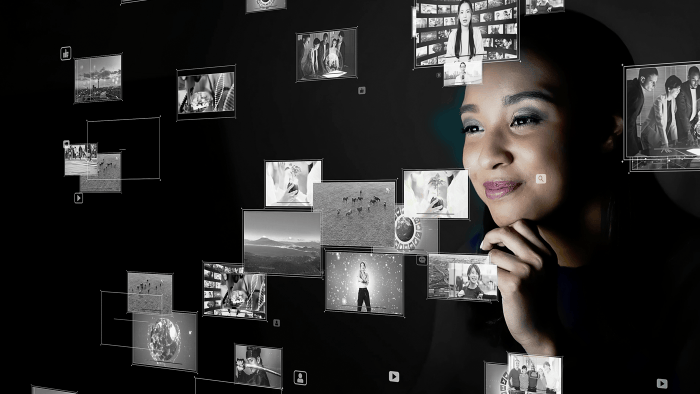The way that people are searching for information, services, and products is changing – fast. With the popularity of AI platforms, gone are the days when most people would perform a simple Google search to find what they need, as marketing companies and businesses desperately play catch-up. This comes as ChatGPT has almost 800 million users as of October 2025, as reported by FirstPageSafe (2025).
Generative Engine Optimisation (GEO) is the evolution of SEO, a move to AI-driven online discovery. With these shifts, public relations (PR) is quickly becoming a key part of successful GEO strategies by seeking opportunities that boost brand awareness, credibility, and trust.
In this blog, we’ll explore how PR is driving the next generation of online search visibility.
How is GEO affecting search?
GEO is the new marketing strategy to gain visibility on AI search engines like ChatGPT, Gemini, and Perplexity. These platforms can directly answer queries, summarising information rather than listing links. As users are increasingly placing trust in AI summaries, fewer people are clicking on and searching through results. As reported in Search Engine Land (Danny Goodwin, 2024), almost 60% of searches ended without a click in 2024.
When compared to SEO, GEO is more focused on brand credibility and context rather than keywords and backlinks. As a result, brands are now looking at ways to increase their influence over how AI perceives and presents their brand, not necessarily how Google presents their webpages.
Why is PR essential for GEO?
Currently, AI tools are looking for several things: accuracy, authority, relevance, and sentiment. These outcomes are synonymous with PR, a marketing approach which is based on earning credibility through third-party endorsements and placements.
AI models use information from high-authority sources, from news outlets, reports, and thought leaders. In tying your GEO strategy with PR through impactful collateral such as press releases, commentary pieces, and interviews, you provide AI engines with the information they need to deliver insightful results.
While AI platforms do show owned content like your website and social channels, it’s the earned content that signals authority and trust, including coverage, reviews, testimonials, case studies, and awards. For example, a brand mention on TechCrunch will show more credibility than writing a blog post on your own site. This comes as Search Engine Land (Danny Goodwin, 2025) reports that Google AI overviews show on 13% of US search results, giving PRs a greater opportunity to get brands in the spotlight.
Are brand mentions the new currency of search?
In recent times, the term digital PR has been a sub-approach of public relations that aims to support SEO activities like link building. With links transferring value to native sites, it has been a fundamental part of SEO and PR strategies for over a decade. While links are still important, there is a growing shift to brand mentions from high authority online sources.
This is supported by research from Ahrefs (Louise Lineham, 2025), which used a Spearman correlation coefficient analysis of around 75,000 brands to understand the factors that contributed to appearances in AI overviews. The top answer was branded web mentions with 0.664.
It’s about quality over quantity. Just one highly relevant mention that portrays your brand in a positive light can be worth more than a dozen irrelevant, low-value links. Good PR coverage isn’t always about big national coverage; often, getting coverage in niche media can be more likely to connect your brand to your target audience and potential buyers, as well as AI search engines.
We must recognise that links will still have their place and often go hand in hand with brand mentions; however, the approach we take to find the right places for coverage must change.

How to craft an effective AI PR strategy
With the effectiveness of PR becoming more widespread, brands are naturally looking at more ways to integrate it within their marketing strategy. Here are a few things you must consider:
Prioritise fresh content
AI engines look for recent and frequently updated content, different from the world of evergreen content. It’s about sharing the most relevant, timely information and offering fresh insights that show the brand is active and leading industry discussions.
Highlight impact and value
AI models typically look for structured, factual, and straightforward text; think press releases, interviews, or unique insights like stats. For announcements that signify business growth, use exclusive first-party data, case studies, and testimonials to evidence your developments. It’s important to cultivate a strong, authentic tone of voice, unique to your company and display clear values that show innovation and demonstrate ESG initiatives.
Respond to industry trends
PR content needs to be tightly written, combining a clear story and angle with all the essential details a journalist, reader, or AI platform needs to know. Research industry trends and your competitors to gain a sense of what people are discussing and find your own unique angle to help your brand stand out from the crowd.
Write for humans
Our biggest recommendation is to write for humans and think about what it is that will capture their attention. PR content should use natural, clear language, without being overly technical or relying on keyword stuffing. AI, like journalists, is there to determine whether information is of interest to its audience, so the more authentic and value-led it is, the more likely you will gain the results you’re aiming for.

How to gain positive AI reputation management through thought leadership
LLMs and AI algorithms tend to prioritise and seek consistent, credible commentary on trending topics to form the basis for answers to prompts and searches. Businesses can look at in-depth feature articles, panel discussions, or first-party research opportunities to begin building their reputation as a trusted source of information.
Press releases feature statements from senior company spokespeople, which helps to add a sense of credibility to each piece. Go beyond speaking about existing trends and provide your own unique offerings or commentary that gets people to stand up and listen. After all, being the voice that everyone quotes helps with both your brand mentions and link building for both SEO and GEO.
Elsewhere, think about awards, reviews, and external reports to show off both credibility and positive sentiment. Gaining award nominations and wins and reviews on platforms like Google Reviews, Trustpilot, and Clutch will broaden the AI search results your business appears in.
What challenges does PR face in GEO?
While PR provides growing opportunities to overcome the new search landscape, it comes with its own set of challenges.
Potential for misuse and misinformation
We must recognise that all forms of PR must be fully transparent to prevent manipulation of AI search results and the spreading of misinformation. Being true to your values and ethical principles helps create a sense of consistency in how your brand appears in search results.
Harder to measure results
Unlike organic social, SEO, paid, and content marketing, it’s always been harder to directly measure PR results and success. While PRs can track open and click rates of outreach to journalists, as well as the number of articles and mentions, tracking AI mentions and search results is currently still a relatively new area, making it more difficult to provide accurate metrics.
However, AI is providing scope for businesses to automate their sentiment analysis and social listening, giving them a chance to build their profile. As reported in SQ Magazine (2025), AI sentiment analysis helped companies to increase their positive brand mentions by 24% in 2025.
Content deemed overly promotional
As AI is looking for authentic content, try to avoid a generic or promotional tone of voice and angles, as it can potentially have the opposite effect of hiding your PR activity from GEO search engines.
The Future of PR and GEO
The digital world of AI has moved extremely fast over the past few years, and no one can predict where it will be at the turn of the new decade. However, we expect to see more interconnection between SEO, PR, and GEO to provide the most valuable search results for clients.
PR professionals will ultimately help to shape the future of brand storytelling. Currently, brands that invest in their reputation, trust, and online visibility will help to improve their rankings and curate credible content for AI searches.
We are a digital agency that can work with you to help your brand get more visibility on AI search results. Our specialists take time to understand your goals, your industry, and competitors to identify strategies that increase your thought leadership, brand sentiment, and overall brand awareness.
Get in touch with our team to discuss your requirements.







